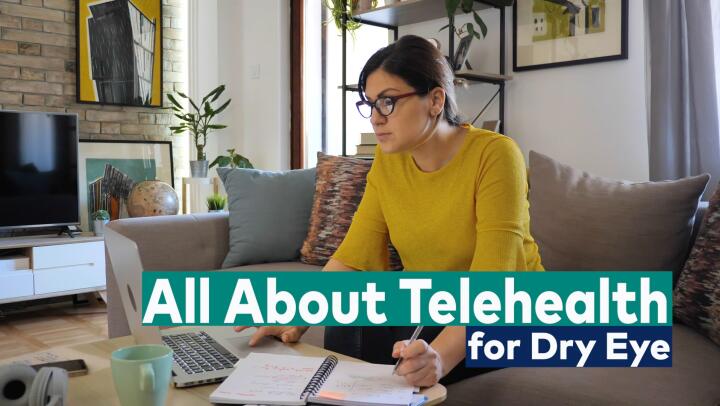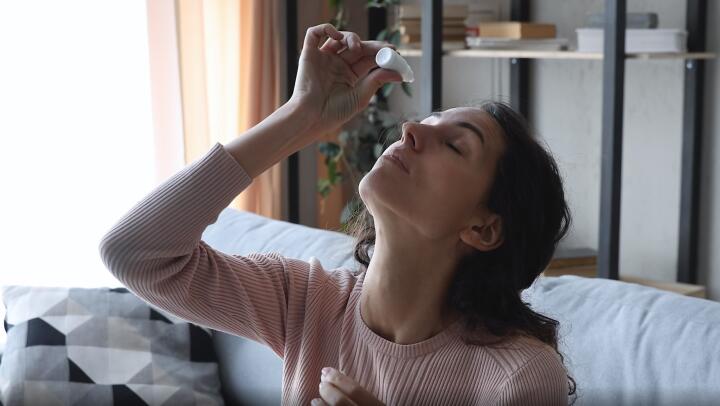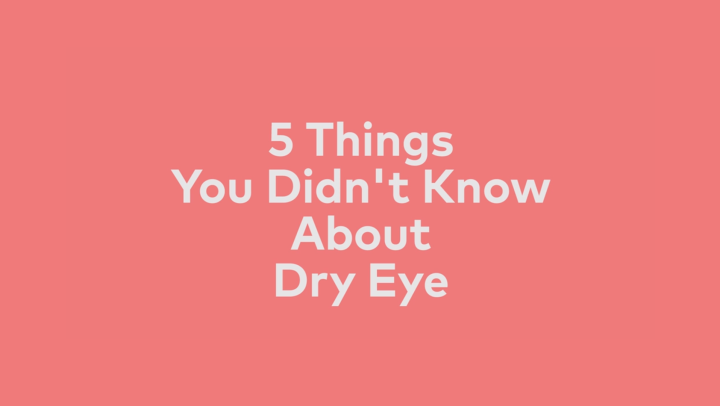Read on to learn more about the causes, treatment, and potential complications of itchy eyelids.
What are the causes of itchy eyelids?

Any condition that irritates, inflames, or infects the eyelid can cause itchy eyelids. Even a lack of sleep can cause your eyelids to itch. Your eyelids are very sensitive and well-supplied with blood vessels and nerves, so even slight inflammation can cause itchiness.
Allergies
Allergies are among the most common causes of itchy eyelids. An allergy that affects your eyelid may be localized, resulting from an allergic reaction to eye makeup, or more generalized, resulting from a condition such as hay fever. Localized allergic reactions are often called contact dermatitis.
Other allergens that can cause itchy eyelids include:
- animal dander
- dust mites
- pollen
- mold spores
Blepharitis
Another common cause of itchy eyelids is blepharitis. This is a condition that results from bacteria, dermatitis, or clogged oil glands. Blepharitis may also cause your eyes and eyelids to burn and become red or crusty.
There are
Conjunctivitis
Conjunctivitis, also known as pink eye, is a condition wherein the membrane that lines the inner part of your eyelid and covers your eye becomes inflamed. Along with itchy eyelids, conjunctivitis can cause discharge, burning, and crusting along the eyelashes or eyelids.
The
- Bacterial: This type of conjunctivitis spreads easily and results from certain bacterial infections. It is more common in children.
- Viral: Different viruses, such as adenoviruses, can cause viral conjunctivitis. It is very contagious and can result in widespread outbreaks.
- Allergic: This type of conjunctivitis is not contagious and occurs after contact with an allergen. It occurs more commonly in people with other allergic conditions, such as asthma.
- Irritant: If a foreign substance — such as dust, smoke, or a chemical — enters the eye, it can cause conjunctivitis. This type is also not contagious.
Other causes
Other common conditions can also cause itchy eyelids, including:
- a chalazion, which is a red bump on the eyelid that results from a blocked oil gland
- the common cold
- a stye, which is a red bump on the edge of the eyelid that typically indicates a bacterial infection
What other symptoms might occur with itchy eyelids?
Itchy eyelids often occur with other eye symptoms, including:
- a burning feeling in the eyes
- a gritty feeling in the eyes
- eye discharge
- increased tear production
- redness and swelling of the eyes or eyelids
Depending on the cause of your itchy eyelids, other parts of your body may also show symptoms. These symptoms can include:
- a runny nose
- sneezing
- swelling of the face
Serious symptoms that might indicate a life threatening condition
In some cases, itchy eyelids may occur with other symptoms that could indicate a condition that requires immediate evaluation. Seek immediate medical care or call 911 if you have itchy eyelids along with other serious symptoms, including:
- difficulty breathing
- wheezing
- choking
- a sudden change in vision, a loss of vision, or eye pain
- sudden swelling of the face, lips, or tongue
How do doctors diagnose itchy eyelids?
To diagnose the cause of itchy eyelids, your doctor will ask you about your symptoms and medical history and perform a physical examination. They will evaluate your eyes, eyelids, and eyelashes. They may also check your vision to see if you are experiencing any vision difficulties or vision loss.
In some cases, doctors
What are the treatments for itchy eyelids?
The treatment for itchy eyelids will depend on the underlying cause. Bacterial infections
To treat allergies affecting the eyes, you will need to avoid contact with the allergens. According to the Asthma and Allergy Foundation of America, you may also need eye drops, prescription allergy medications, or allergy shots.
Many of the treatments for itchy eyelids can happen at home. Your doctor may recommend:
- applying cold compresses to the eye for allergies
- using eye drops known as artificial tears to help with dryness and irritation
- applying a mixture of warm water and a gentle cleanser to your eye area with a sterile cloth or cotton swab to loosen any crust or prevent clogged oil glands
Avoid touching your eyes and eyelids and wash your hands often to prevent infection from spreading and to avoid introducing new irritants into your eye.
What are some potential complications of itchy eyelids?
Itchy eyelids generally result from treatable conditions and do not typically lead to serious complications. However, excessive rubbing or scratching in response to itchy eyelids can damage the eyelid skin and irritate or scar the surface of the eye. In addition, severe infections can lead to permanent eye damage if left untreated.
Once your doctor has diagnosed the underlying cause, it is important for you to follow their treatment plan to reduce the risk of potential complications, including:
- vision loss
- scarring of the eye
- spread of infection
Frequently asked questions
These are a few other commonly asked questions about itchy eyelids. Dr. Sara Frye has medically reviewed these answers.
What is a natural remedy for itchy eyelids?
Cold compresses can help relieve itchy eyelids. If you are experiencing a blocked oil gland or crusty eyelashes, soaking a sterile cloth in a mixture of water and a gentle cleanser and applying it to your eye may also help relieve your symptoms.
What cream can I put on itchy eyelids?
Because any cream you put on your eyelids can get into your eyes, you should only use formulations intended for use in or around the eyes. Over-the-counter options include lubricating ophthalmic ointments, which can help heal dry, cracking skin on the eyelids. Medicated options are available by prescription only.
Will eyelid dermatitis go away on its own?
Depending on the cause of your eyelid dermatitis, it may go away on its own if you can identify and avoid the trigger.
Summary
Itchy eyelids can result from various conditions, including infections, allergies, and blocked oil glands. Other symptoms that may occur include burning or irritation in the eyes, redness, swelling, and discharge.
Your doctor will perform a thorough eye exam to diagnose the cause of your itchy eyelids. Treatment may include home remedies such as cold compresses or artificial tears, or your doctor may need to prescribe eye drops or ointments.
Talk with your doctor if you are experiencing itchy eyelids.













